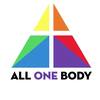This is the thirteenth installment in a series of reflections on LGBTQ+ matters.
As a delegate to the Christian Reformed Church’s Synod twice during the years of debate over opening the offices of the Church to women, I heard lament over what was perceived to be a lack of unity. I recall arguing as a member of a Synodical Advisory Committee that was responsible for the “Women in Office” reports and overtures that unity was not the same as uniformity. This concern for unity is being revisited in the current context of discussions about the place of LGBTQ+ Christians in our fellowship.
The desire for unity seems to be deep in our beings. We want it in our families, our friendships, and in our churches. When we are unreconciled, we are troubled and long for peace and a sense of oneness, of being on the same page. When we experience unity, we feel blessed.
Our differences over same-sex relationships and marriages and over the participation of LGBTQ+ individuals in our congregations stir our fear of disunity. But unity does not have to mean thinking alike on every point of doctrine or on every ethical choice we individually make. Are we disunified because we discuss how universal grace is? Are we disunified because we differ over whether women may be ordained? Are we disunified because of differences over who someone may love or marry? If so, I submit it is because we are looking for unity in the wrong places.
Seeking agreement that marriage is between one man and one woman is not the place to find unity. Seeking agreement on exactly what qualifies as sin is not the place to find unity. Seeking agreement on the interpretation of vexingly complex passages in scripture is not the place to find unity.
Unity is a gift. It is not achieved simply as a result of human effort by applying a formula. It is a gift of the Divine. Despite this, we busy ourselves trying to make unity happen among us by trying to find ideas about which we can agree.
The Belhar Confession talks about unity in this way:
We believe in one, holy universal Christian church, the communion of saints called from the entire human family. And we believe that this unity of the people of God must be manifested and active in a variety of ways: in that we love one another; that we experience, practice, and pursue community with one another; that we… give ourselves willfully and joyfully… to one another; …that we have one God and Father, are filled with one Spirit, are baptized with one baptism, eat of one bread and drink of one cup; that we confess one name, are obedient to one Lord, work for one cause, and share one hope, and together come to know the height and the breadth and the depth of the love of Christ; …together know and bear one another’s burdens, thereby fulfilling the law of Christ that we need one another and upbuild one another, [and] together serve God in this world….”
When Jesus prayed, “…that all of them may be one, Father, just as you are in me and I am in you” (John 17:21), he was saying that we can find our unity in the kind of unity shared by the different parts of God. Just as Creator God, Christ, and Holy Spirit are in communion, we find unity when we are in communion with God. When we discover that we can live in closer union with God, then we also discover that in belonging to God we belong to each other. Those are powerful and true sources of unity.
Tom Hoeksema is a member of the Board of All One Body. He is a retired Professor of Education at Calvin University, where among other things he advocated for inclusiveness for children with varied abilities in P-12 schools and worked to break down barriers to full participation of marginalized people in the church.
